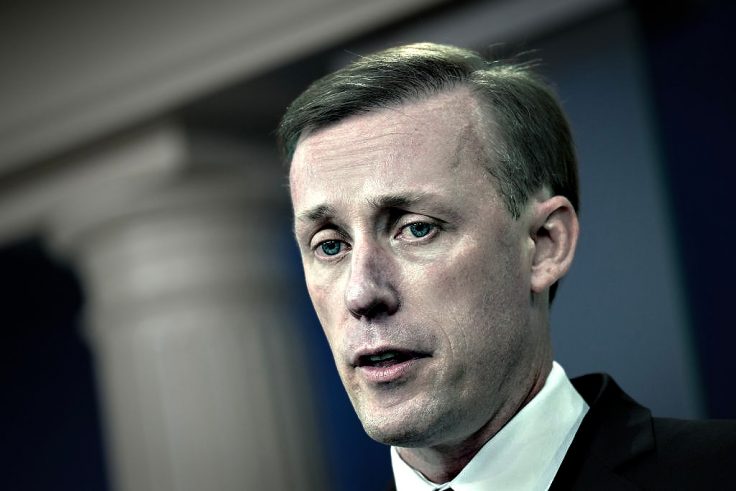National Security Adviser Jake Sullivan boasted in a Foreign Affairs essay that the White House "de-escalated crises in Gaza"—then made substantial revisions after Hamas's terrorist rampage in early October sparked a war.
The print edition of National Security Adviser Jake Sullivan’s Foreign Affairs piece, titled "The Sources of American Power," outlines how the Biden administration’s "foreign policy for a changed world" is leading to a "freer and more stable world." Sullivan particularly praises Biden for helping to bring peace to the Middle East.
"The Israeli-Palestinian situation is tense, particularly in the West Bank," Sullivan wrote, "but in the face of serious frictions, we have de-escalated crises in Gaza and restored direct diplomacy between the parties after years of its absence."
That was one of several lines removed or altered in the online version of Sullivan's piece in light of Hamas’s Oct. 7 invasion of Israel, which left 1,300 Israelis dead. The original version seems to have gone to print prior to the attack, and appeared in the print edition of the magazine released Wednesday.
Publications rarely allow an author to make substantial changes after a piece has been sent to print, revisions are generally reserved for factual errors. But the digital edits to Sullivan’s piece are immense, and undermine his original argument that Biden is forging peace in the Middle East.
In lieu of Sullivan’s boast that "we have de-escalated crises in Gaza," the online version of his article notes: "The original version of this article emphasized that this progress was fragile and that perennial challenges remained, including tensions between Israel and Palestinians and the threat posed by Iran. The October 7 attacks have cast a shadow over the entire regional picture, the repercussions of which are still playing out, including the risk of significant regional escalation."
Sullivan also claimed in the print edition of his article that Biden’s outreach to Middle Eastern leaders "emphasizes deterring aggression, de-escalating conflicts, and integrating the region through joint infra- structure projects and new partnerships, including between Israel and its Arab neighbors. And it is bearing fruit."
Following Hamas’s attacks on Israel, Sullivan appears to have changed his mind. Now, Sullivan wrote, the White House is "alert to the risk that the current crisis could spiral into a regional conflict."
None of Sullivan’s original paragraphs on the Middle East are available online.
Sullivan’s tenure in Democratic foreign policy circles has been marred with criticism. In September, he boasted at the Atlantic Festival that "The Middle East region is quieter today than it has been in two decades." He has presided over a number of foreign policy failures including the "kinetic military action" campaign against Libya in 2011, the 2014 Iran nuclear deal, and the United States withdrawal from Afghanistan that resulted in the deaths of 13 Americans.
A PDF of the print edition of Sullivan’s essay can be found here.
Foreign Affairs did not respond to a request for comment.
